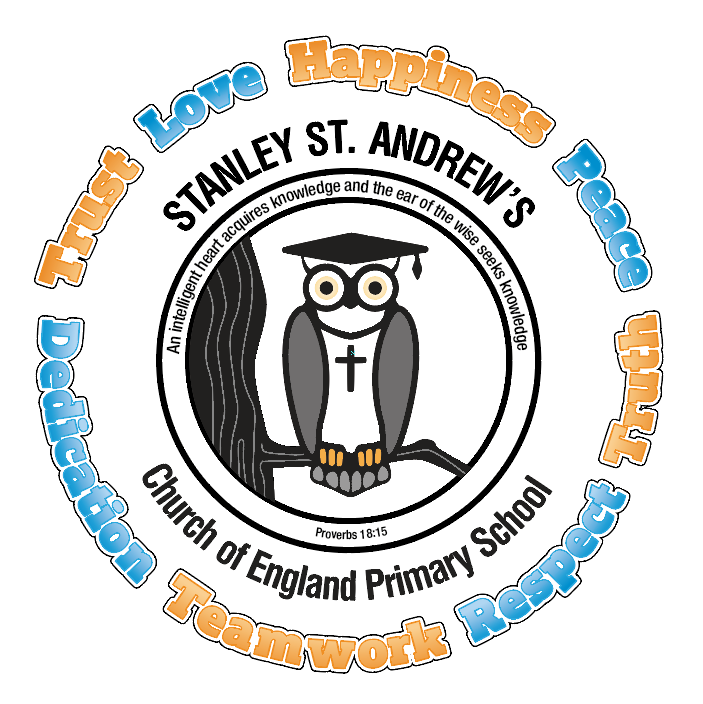Mathematics Focus
At Stanley St Andrew's Primary School we aim to provide the pupils with a mathematics curriculum which will produce individuals who are numerate, literate, creative, independent, inquisitive, enquiring and confident.
We also aim to provide stimulating environments and experiences so that pupils can develop their mathematical skills to their full potential whilst at the same time developing a love of learning and an appreciation of the wonderful patterns underpinning the world of mathematics.
The aims of the national curriculum are to ensure all pupils: –
- Become fluent in the fundamentals of mathematics, including through varied and frequent practise with increasingly complex problems over time, so that pupils develop conceptual understanding and the ability to recall and apply knowledge rapidly and accurately
- Reason mathematically by following a line of enquiry, conjecturing relationships and generalisations, and developing an argument, justification or proof using mathematical language
- Can solve problems by applying their mathematics to a variety of routine and non‐routine problems with increasing sophistication, including breaking down problems into a series of simpler steps and persevering in seeking solutions.’
The Mastery Approach
At Stanley St Andrew's Primary School we feel the best way to achieve the aims set out by the National Curriculum is through adopting a Mastery approach. This approach involves exploring the 5 big ideas:
Coherence
Connecting new ideas to concepts that have already been understood, and ensuring that, once understood and mastered, new ideas are used again in next steps of learning- all steps being small steps.
Representation and Structure
Representations used in lessons expose the mathematical structure being taught. These representations are practical and pictorial models. The aim being that students can do the maths without recourse to the representation.
Mathematical Thinking
If maths concepts are to be understood deeply, they must not merely be passively received but must be worked on by the student – thought about, reasoned with and discussed with others.
Fluency
Quick and efficient recall of facts and procedures and the flexibility to move between different contexts and representations of mathematics. Procedural fluency is the ability to apply procedures accurately, efficiently, and flexibly; to transfer procedures to different problems and contexts; to build or modify procedures from other procedures; and to recognize when one strategy or procedure is more appropriate to apply than another.
Variation
Varying the way, a concept is initially presented to students, by giving examples that display a concept as well as those that do not display it. Also, carefully varying practice questions so that mechanical repetition is avoided, and thinking is encouraged.
